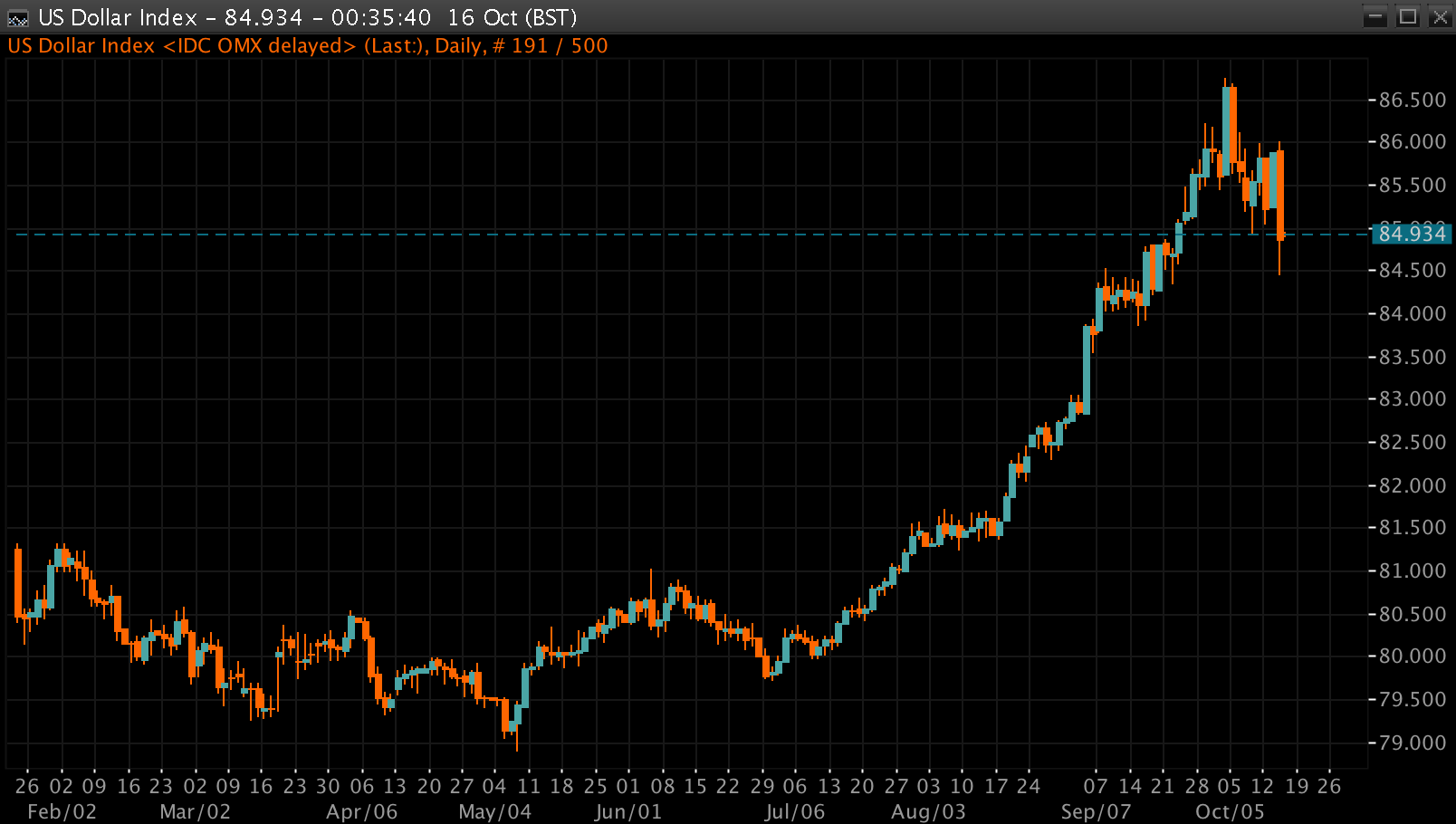Is Over-the-Counter Birth Control The Future Of Reproductive Healthcare?

Table of Contents
Accessibility and Affordability of Over-the-Counter Birth Control
A major argument for over-the-counter birth control centers on increased accessibility and affordability. For many women, especially those in underserved communities, obtaining birth control is a significant hurdle.
Increased Access for Underserved Populations
Over-the-counter availability would dramatically improve access for women in:
- Rural areas: Lack of nearby clinics and long travel distances currently limit access to reproductive healthcare.
- Low-income communities: The cost of doctor visits, prescriptions, and insurance co-pays can be prohibitive.
- Communities with limited healthcare providers: Many areas lack sufficient numbers of gynecologists and other healthcare professionals specializing in reproductive health.
The increased convenience of over-the-counter birth control could significantly reduce unintended pregnancies and the spread of sexually transmitted infections (STIs) in these vulnerable populations. This accessibility would empower women to make informed choices about their reproductive health without facing significant financial or logistical barriers.
Cost-Effectiveness Compared to Current Models
The cost of prescription birth control, including doctor visits and prescription fees, can be substantial. Over-the-counter options could drastically reduce these expenses:
- Lower direct costs: OTC birth control would eliminate prescription fees and potentially reduce the overall cost of birth control.
- Reduced doctor visit costs: Eliminating the need for regular check-ups solely for birth control refills would save both time and money.
- Long-term economic benefits: Reduced unintended pregnancies lead to fewer healthcare costs associated with prenatal care, childbirth, and subsequent childcare.
Government subsidies or programs could further enhance affordability, ensuring that over-the-counter birth control is accessible to everyone regardless of their socioeconomic status. The potential for long-term cost savings for individuals and the healthcare system as a whole is a compelling argument in favor of this approach.
Potential Risks and Concerns of Over-the-Counter Birth Control
While increased accessibility is a strong advantage, the potential risks and concerns of over-the-counter birth control must be carefully considered.
Self-Medication and Misuse
A primary concern is the potential for incorrect usage and misuse, leading to:
- Reduced effectiveness: Failure to follow instructions precisely can significantly decrease the contraceptive effectiveness of certain methods.
- Unintended consequences: Incorrect usage might lead to unintended pregnancies or other health complications.
- Increased reliance on online information: The lack of professional guidance might cause some individuals to rely on unreliable or inaccurate online information.
Pharmacists can play a critical role in mitigating these risks by providing clear instructions, answering questions, and identifying potential contraindications. Clear, accessible, and multi-lingual educational materials are also crucial for ensuring safe and effective use.
Impact on Healthcare Professionals
The shift to over-the-counter birth control could also impact healthcare professionals:
- Shift in focus: Doctors and gynecologists might see a reduction in routine birth control prescription management, allowing them to focus on more complex reproductive health issues.
- Increased demand for consultations: There might be an increase in the number of consultations related to side effects, concerns about effectiveness, or other complications.
- Collaboration opportunities: Strong collaboration between healthcare professionals and OTC providers could help address any concerns or complications arising from OTC birth control use.
Potential for Increased Rates of Unintended Pregnancy
Some argue that easier access to birth control could paradoxically lead to increased rates of unintended pregnancies due to misuse. However, this argument needs further investigation and would depend heavily on the effectiveness of public health campaigns promoting responsible use and access to accurate information. Robust educational campaigns and strategies for mitigating the risk of misuse are essential.
The Role of Education and Information in Over-the-Counter Birth Control Access
Comprehensive education and readily accessible information are vital for the successful implementation of over-the-counter birth control.
Comprehensive Educational Materials
Effective educational materials must be:
- Clear and concise: Information must be easy to understand, regardless of the individual's level of education.
- Accessible: Materials should be available in various formats (printed, video, online) and languages.
- Inclusive: Information should be accessible to people with disabilities.
The Role of Pharmacists in Counseling
Pharmacists are uniquely positioned to provide guidance and address patient concerns:
- Specialized training: Pharmacists require specific training on counseling patients about over-the-counter birth control options.
- Increased consultations: The increased demand for consultations will require increased resources for pharmacist training and support.
- Integration into existing services: Counseling on over-the-counter birth control should be seamlessly integrated into existing pharmacist services.
Conclusion
The debate surrounding over-the-counter birth control is complex, with significant implications for reproductive healthcare. While the increased accessibility and affordability of over-the-counter birth control offer the potential to improve health outcomes for many women, particularly those in underserved communities, careful consideration must be given to potential risks, including misuse and the need for comprehensive educational initiatives. Ultimately, the success of over-the-counter birth control hinges on a carefully balanced approach that prioritizes access while ensuring responsible use and mitigating potential risks. To ensure a future where reproductive healthcare is accessible to all, we must engage in ongoing discussion about the responsible implementation of over-the-counter birth control options and the crucial role of education and pharmacist involvement.

Featured Posts
-
 T Mobile Data Breaches Result In 16 Million Penalty
Apr 28, 2025
T Mobile Data Breaches Result In 16 Million Penalty
Apr 28, 2025 -
 Using Ai To Create A Podcast From Repetitive Scatological Documents
Apr 28, 2025
Using Ai To Create A Podcast From Repetitive Scatological Documents
Apr 28, 2025 -
 Lapd Releases Videos Showing Chaos Before Shooting Of Weezer Bassists Wife
Apr 28, 2025
Lapd Releases Videos Showing Chaos Before Shooting Of Weezer Bassists Wife
Apr 28, 2025 -
 Anchor Brewing Companys Closure Whats Next For The Iconic Brewery
Apr 28, 2025
Anchor Brewing Companys Closure Whats Next For The Iconic Brewery
Apr 28, 2025 -
 Ftc Appeals Activision Blizzard Acquisition Microsoft Deal In Jeopardy
Apr 28, 2025
Ftc Appeals Activision Blizzard Acquisition Microsoft Deal In Jeopardy
Apr 28, 2025
Latest Posts
-
 The U S Dollars First 100 Days A Historical Comparison
Apr 28, 2025
The U S Dollars First 100 Days A Historical Comparison
Apr 28, 2025 -
 U S Dollars Troubled Start Parallels To The Nixon Presidency
Apr 28, 2025
U S Dollars Troubled Start Parallels To The Nixon Presidency
Apr 28, 2025 -
 Nixons Shadow A Look At The Current U S Dollars Performance
Apr 28, 2025
Nixons Shadow A Look At The Current U S Dollars Performance
Apr 28, 2025 -
 U S Dollar Weak Start To Presidency Mirrors Nixon Era
Apr 28, 2025
U S Dollar Weak Start To Presidency Mirrors Nixon Era
Apr 28, 2025 -
 Yukon Legislature Mine Managers Testimony Sparks Contempt Threat
Apr 28, 2025
Yukon Legislature Mine Managers Testimony Sparks Contempt Threat
Apr 28, 2025
